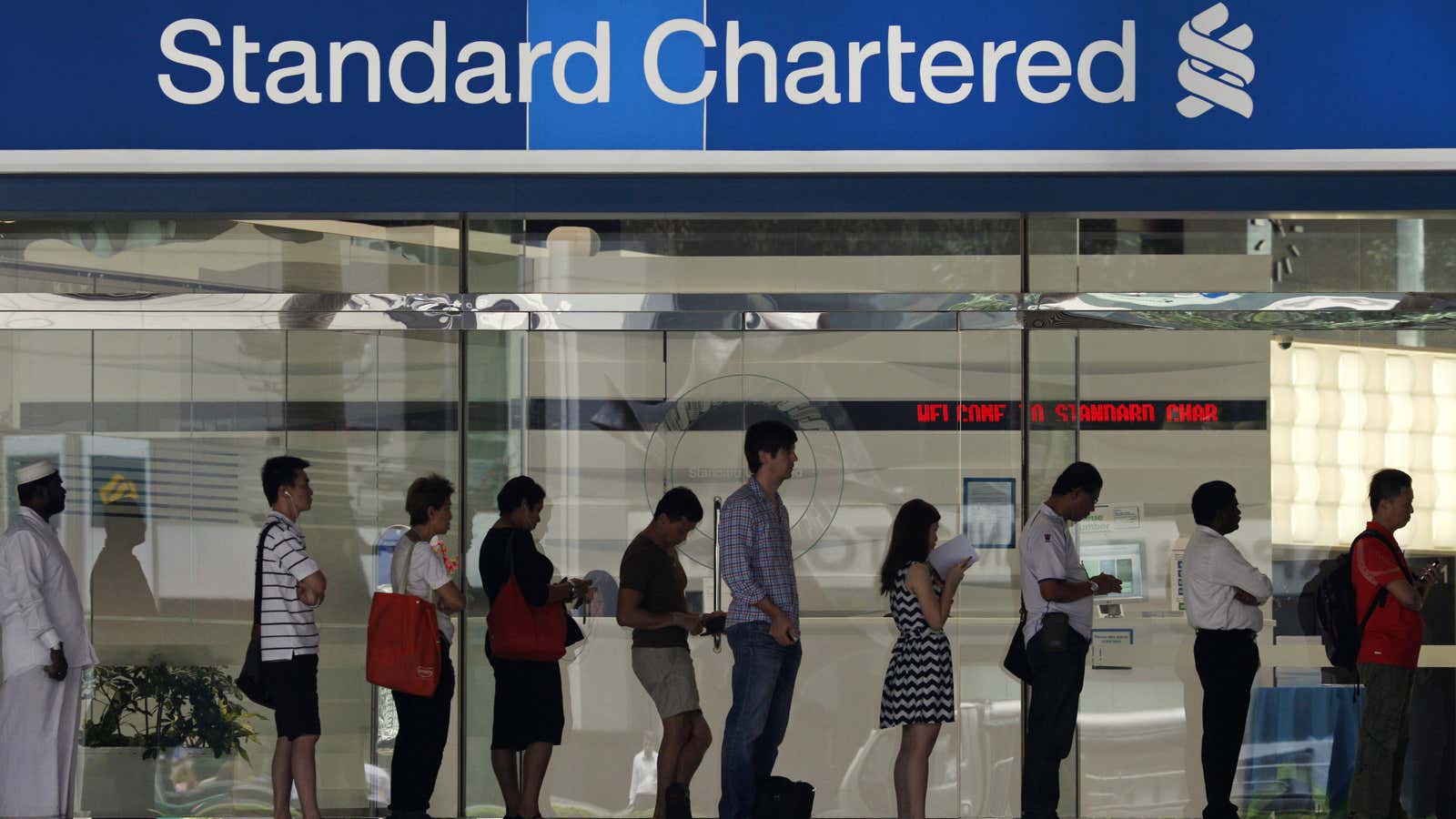Too little, too late. Earlier this month, Standard Chartered said that it had boosted its legal and compliance headcount by 30%, including a doubling in its financial crime unit. What’s more, the bank created a board-level “Financial Crime Risk Oversight Committee,” a key part of its “Financial Crime Risk Mitigation Programme.”
The moves stemmed from a $667 million settlement in 2012 for breaking US anti-money laundering rules, settling charges that it managed transfers for clients in Iran and other countries covered by American sanctions.
But a few months later the bank’s chairman fell foul of that settlement by suggesting the transgressions weren’t willful; he was forced to quickly recant. Today, it seems that all of those new legal staffers and crime-fighting committees also didn’t get the memo about what they are meant to be doing. New York’s financial regulator slapped another $300 million fine on Standard Chartered for “failures to remediate anti-money laundering compliance problems as required” in its previous settlement.
Part of the bank’s 2012 agreement included hosting an independent monitor permanently installed by regulators on-site to vet anti-money laundering procedures. This monitor was back-testing the bank’s processes and found them lacking, particularly when it came to flagging suspicious dollar transfers from its Hong Kong and United Arab Emirates affiliates.
In a statement, Standard Chartered said that it “has already begun extensive remediation efforts and is committed to completing these with utmost urgency.” For real this time.
Now, in addition to the fine, the bank cannot open any dollar-based account for a new customer in New York without prior approval from regulators. It will also need to submit a lot more information to the authorities about every foreign dollar transfer over $3,000 and submit to a full ban on dollar clearing for certain “high risk” clients in Hong Kong.
These penalties will remain in force until the bank’s “detection scenarios are operating to a standard approved” by New York’s financial watchdog. The on-site monitor, who was due to leave the bank later this year, will stay on for another two years.
Standard Chartered is just one of several banks to pay fines for faulty money-laundering controls and hire small armies of compliance staff. That it still couldn’t get its act together—and that regulators were willing to follow through on their threat to act if it didn’t—will be a warning to others.
Or maybe not. The extra bureaucracy imposed on Standard Chartered’s dollar-clearing operations won’t do its business any favors, but the impact isn’t yet quantifiable. (When BNP Paribas was hit by a big fine and a partial ban on dollar clearing earlier this year, its share price actually rose.) In pure financial terms, Standard Chartered has now paid nearly $1 billion in fines thanks to its duff systems for flagging potentially dodgy transactions. But since it paid its first instalment in 2012, it has also made more than $6.5 billion in profit.
